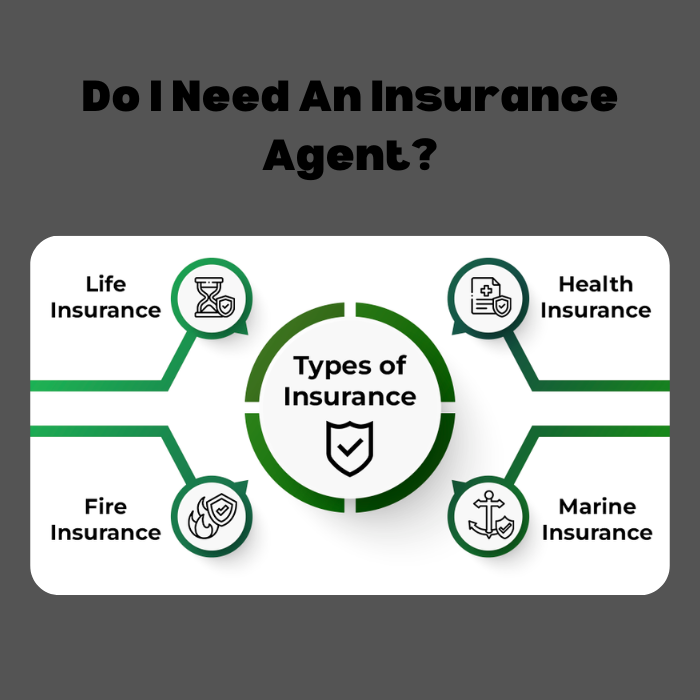Do I Need An Insurance Agent?
Are you tired of navigating the complex world of insurance on your own? Wondering if it’s time to enlist the help of an insurance agent? We’ve got you covered! In this blog post, we’ll dive deep into the question “Do I Need An Insurance Agent?” and uncover all the reasons why having a trusted advisor by your side can make all the difference.
Whether you’re a first-time buyer or a seasoned policyholder, join us as we explore how an insurance agent can save you time, and money, and provide peace of mind in ways that self-service platforms simply cannot. So let’s put on our detective hats and find out why partnering with an expert might just be the best decision you make for your insurance needs.
Table of Contents
What is Insurance?
If you’re considering purchasing a home, you’ll likely want to get insurance for it. Home insurance protects your property from damage or loss in the event of an accident or theft. You may also want to consider getting homeowner’s insurance if you live in a house and don’t have renters living there with you.
You can buy general liability insurance to protect yourself and your business from lawsuits that may be filed due to accidents or other incidents. Auto insurance helps cover the costs of damages to your car caused by someone else. Life insurance protects you and your loved ones should something happen to you.
The cost of coverage will vary depending on the type of policy you purchase, the company you choose, and how much risk you are willing to take on. There are also multiple types of discounts available for people who use certain insurers, such as AAA or military veterans. Speak with an agent about which type of policy is best for you and your family.
Types of Insurance
There are many types of insurance, and each has its own benefits and drawbacks. Auto insurance, home insurance, life insurance, and health insurance are just a few examples. Each type of insurance has different requirements and restrictions. Before you buy any type of insurance, it’s important to understand the basics.
- Auto Insurance: Auto insurance is essential if you own a car. It provides financial protection in the event that you’re involved in a car accident. You must have liability coverage on your policy in order to be eligible for property damage coverage. Your rates may also vary depending on your driving record. The minimum required liability coverage is $25,000 per person/$50,000 per incident.
- Home Insurance: Home insurance protects your home from losses caused by accidents or natural disasters. Homeowner’s policies typically cover physical damage such as broken windows or floors; loss of contents (including stolen items); and damage to the structure itself. Some homeowners’ policies also offer supplemental coverage such as fire suppression and theft protection. Rates for home insurance vary based on location, size of the home, and features included in the policy.
- Life Insurance: Life insurance is useful if you want to ensure that your loved ones will be taken care of financially if something happens to you. A life insurance policy pays out a lump sum if you die while the policy is still in force, or pays regular monthly payments until the policy expires or is canceled. The amount paid depends on how much money.
- Health Insurance: Health insurance is important for everyone, but it’s especially important if you have a chronic illness or are pregnant. Health insurance policies can cover hospital expenses, prescription drugs, doctor visits, and other medical costs. The most common types of health insurance policies are employer-sponsored plans and individual health policies. Employer-sponsored plans are usually the cheapest option, but they may not cover all of your medical costs. Individual health policies are more expensive but may offer more coverage options.

How do Insurance Companies Make Money?
Insurance companies make money by charging customers for their services. Customers pay premiums every month to the insurance company in order to have protection against risks such as loss of income, health concerns, and property damage. The company invests these premiums into its reserves and pays out claims when they arise.
The Role of an Insurance Agent
An insurance agent is an important part of the insurance process. They help customers find the best coverage for their needs and can guide them through the options available. An insurance agent can also help you understand your policy and how it works.
An insurance agent can help you find the best coverage for your needs. They can also help you understand your policy and how it works.
Pros and Cons of Having an insurance agent
There are many pros to having an insurance agent on your side:
- A licensed agent can help you understand all the different types of insurance available, advise you on the best options for each policy, and handle all the paperwork so you can focus on your business.
- An agent also can save you money by finding lower-cost coverage or helping you negotiate a better price on a policy.
However, hiring an agent comes with some potential cons as well:
- First, agents typically charge a commission fee, which can add up if you have multiple policies with them.
- Second, agents may not be familiar with all the ins and outs of every policy type out there, so they may not be able to help you find the best coverage for your needs. If an agent is not licensed in your state, he or she may not be able to provide you with the full range of services that are available through a licensed agent.
So while having an insurance agent can be a valuable resource for many small businesses, it’s important to weigh the benefits and drawbacks before making a decision.
Conclusion
At the end of the day, the decision to have an insurance agent or not is one that you will have to make on your own. However, if you are unsure about what kind of coverage you need or want some help in figuring out what would be best for your specific situation, it might be a good idea to seek out expert advice. An insurance agent can help guide you through all of your options and provide recommendations based on your individual needs.






